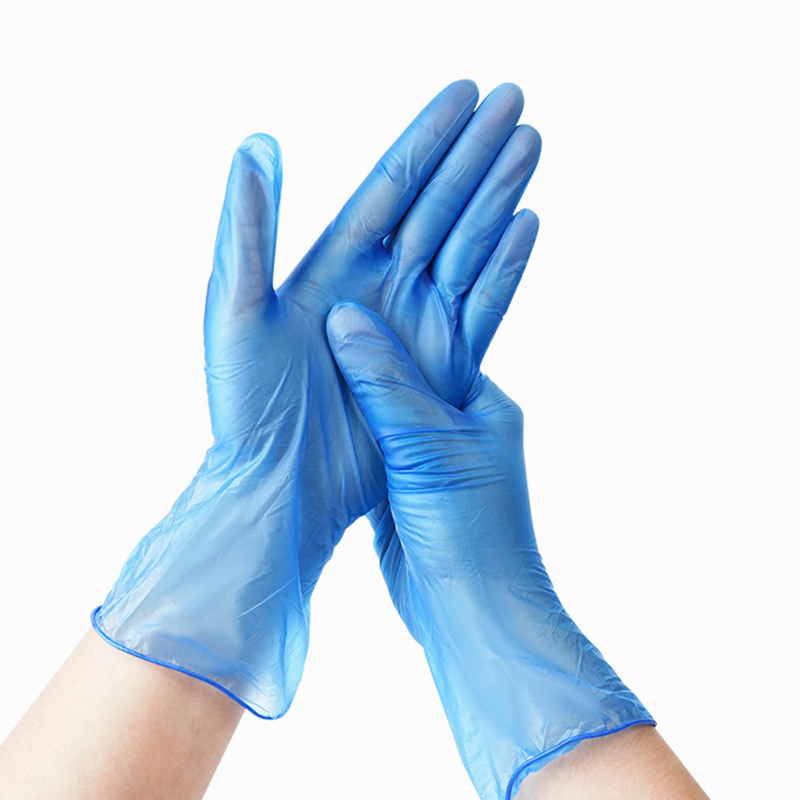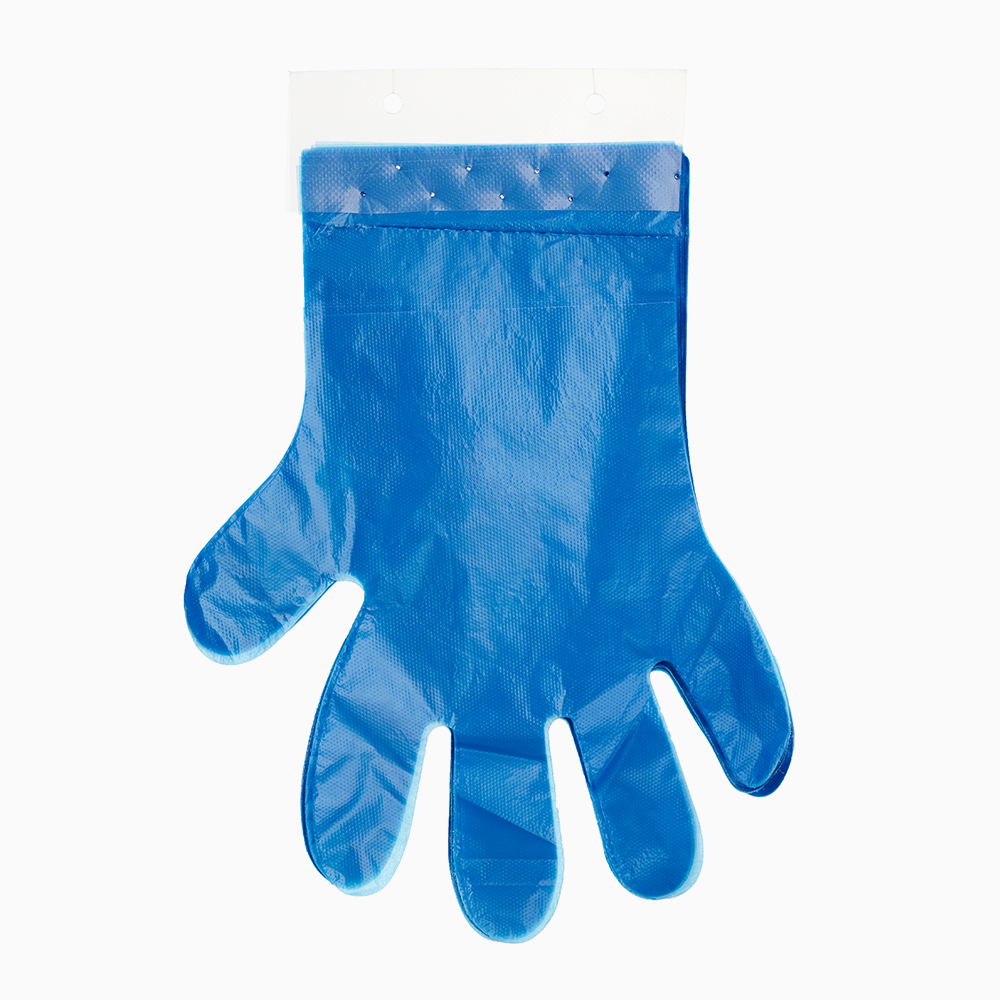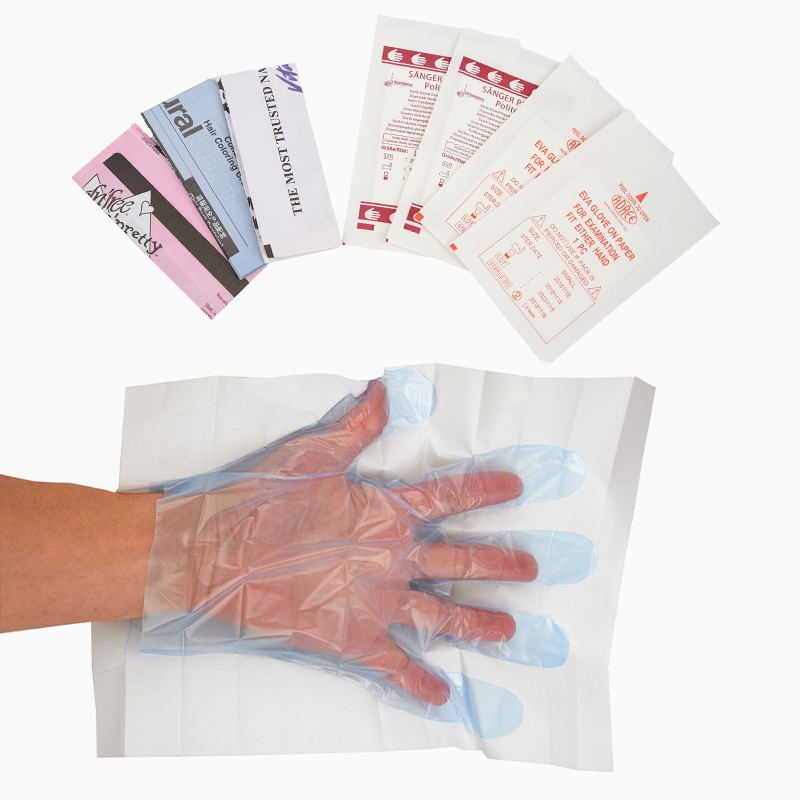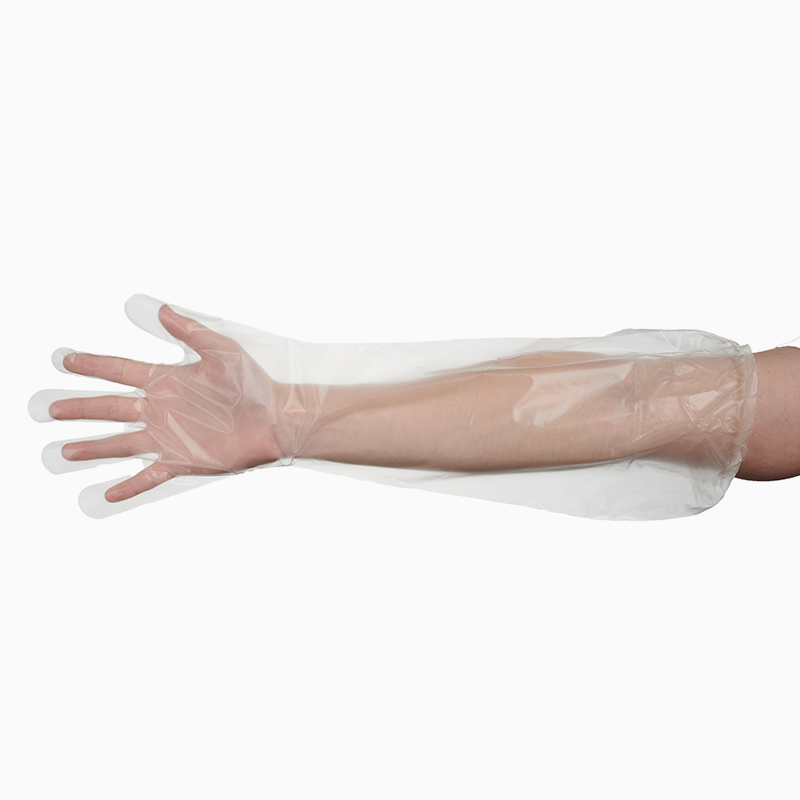The study of the comparative suitability of food disposable gloves made of different materials for food contact is important for safeguarding food safety, providing a reference for consumer choice and promoting sustainable development. Different materials of gloves have different characteristics and advantages and disadvantages, and the study can provide reference for consumers and food practitioners to choose suitable food disposable gloves.
The correct choice of suitable disposable glove material can effectively safeguard food safety and reduce the possibility of food being contaminated or subjected to glove material residues.
Some new food disposable gloves materials such as TPE and mosu materials can replace traditional materials such as latex and nitrile, improving the sustainability of glove materials and contributing to environmental protection and sustainable development.
A. Latex gloves food disposable gloves
When in contact with food, it is best to use powder-free food disposable gloves, such as latex or vinyl gloves. Latex gloves are usually soft, durable, and flexible for general food handling tasks. Mosu gloves, on the other hand, are tougher and suitable for handling foods that require stronger protection, such as when handling irritating ingredients like chili peppers, which can effectively avoid the irritation and damage caused by ingredient juices on the skin of the hands.
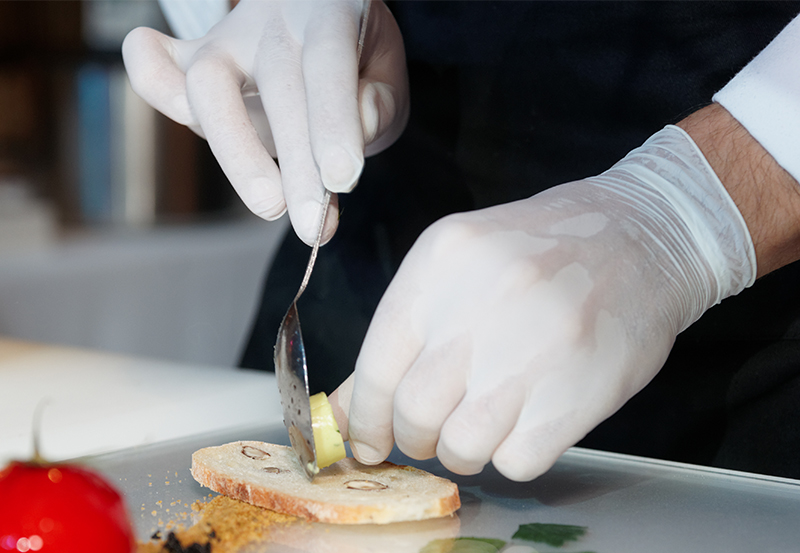
B. Nitrile gloves
Nitrile gloves are powder-free food disposable gloves with better chemical resistance and puncture resistance compared to latex gloves, making them suitable for handling foods that require a higher level of protection, such as meat and seafood. Compared to latex gloves, nitrile gloves are more suitable for those with latex allergies because they do not contain latex proteins and do not cause allergic reactions. In addition, the elasticity and softness of nitrile gloves are better, making them more comfortable to wear. Overall, nitrile gloves are a cost-effective food handling glove that is worth considering for use. However, it should be noted that the quality of nitrile gloves varies greatly from brand to brand and model to model, and it is very important to choose a good quality brand and model.

C. Polyethylene gloves (PE gloves)
Polyethylene food disposable gloves are usually thin and have good softness and breathability, making them suitable for general food handling tasks such as making sandwiches, packaging food, or for use in supermarkets.
However, it should be noted that polyethylene gloves have lower chemical resistance and puncture resistance, making them unsuitable for handling foods that require a higher level of protection, such as meat and seafood. In addition, polyethylene gloves are prone to breakage and special care should be taken when using them to avoid them being cut or perforated to avoid cross-contamination.
In summary, polyethylene food disposable gloves can be used for general food handling tasks, but when handling foods that require a higher level of protection, it is best to choose gloves with better protective properties, such as latex or nitrile gloves.
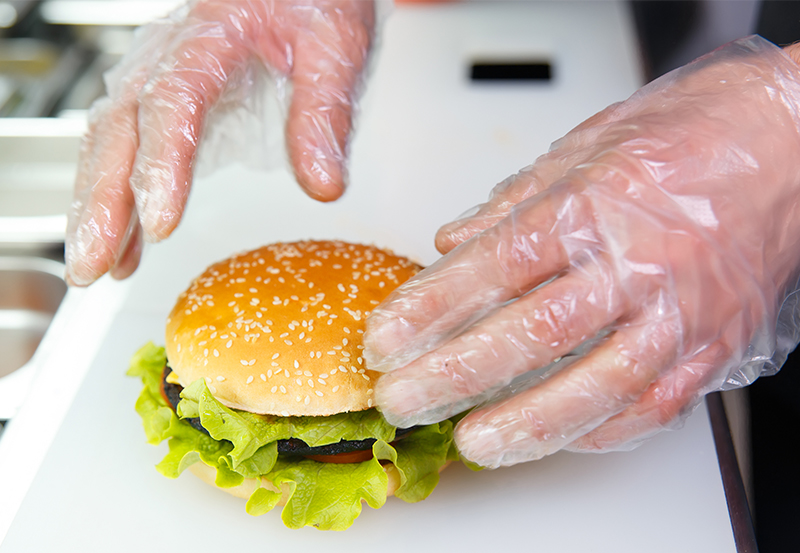
D. TPE gloves
TPE gloves are thermoplastic elastomer gloves, mainly composed of olefin polymer materials and other additives. Compared to latex and nitrile gloves, TPE food disposable gloves are usually cheaper and more environmentally friendly because TPE materials can be recycled and have less environmental impact.
TPE gloves can be used for general food handling tasks but may be less suitable when handling foods that require a high level of protection, such as meat and seafood, because of their lower chemical resistance and puncture resistance. In addition, TPE food disposable gloves are usually not suitable for contact with grease, as their material may be dissolved by grease, thus reducing the protective properties of the gloves.
In conclusion, TPE gloves can be used for general food handling tasks, but when handling some foods that require a higher level of protection, it is best to choose latex or nitrile gloves. Also, care should be taken to choose a good quality brand and model to ensure the quality and safety performance of the gloves.
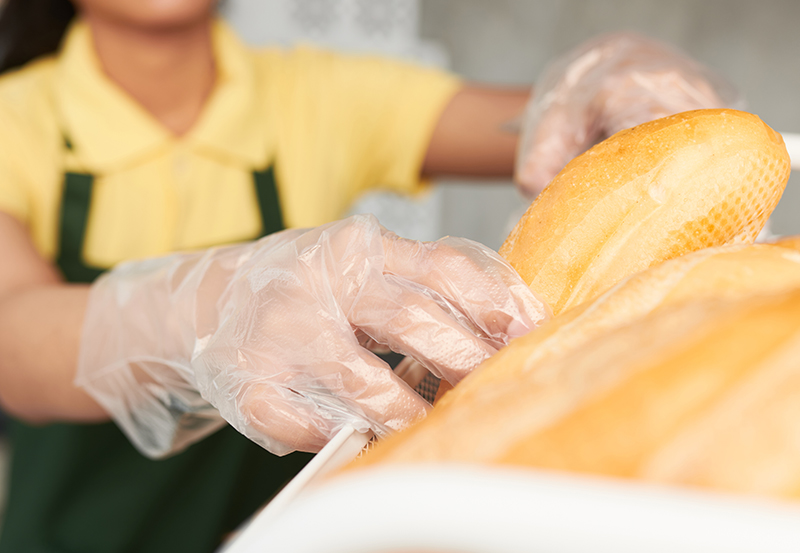
E.CPE gloves
CPE gloves are thermoplastic elastomer gloves, usually made of vinyl material and other additives. Compared to polyethylene gloves, CPE food disposable gloves are more chemically resistant and have better puncture resistance, making them more widely used in food handling applications.
CPE gloves are often considered a suitable type of glove for food contact and can be used in food preparation and handling processes such as kitchen cooking, restaurant service, etc. However, when handling foods that require a higher level of protection, such as meat and seafood, it is recommended to choose gloves with better protective properties, such as nitrile gloves.
In addition, CPE food disposable gloves may melt when in contact with grease, thus reducing the protective properties of the gloves, so in the case of contact with grease, it is recommended to choose gloves with better protective properties, such as nitrile gloves.
In conclusion, CPE food disposable gloves are suitable for contact with food, but in the case of handling food that requires a higher level of protection or contact with grease, it is recommended to choose gloves with better protection.
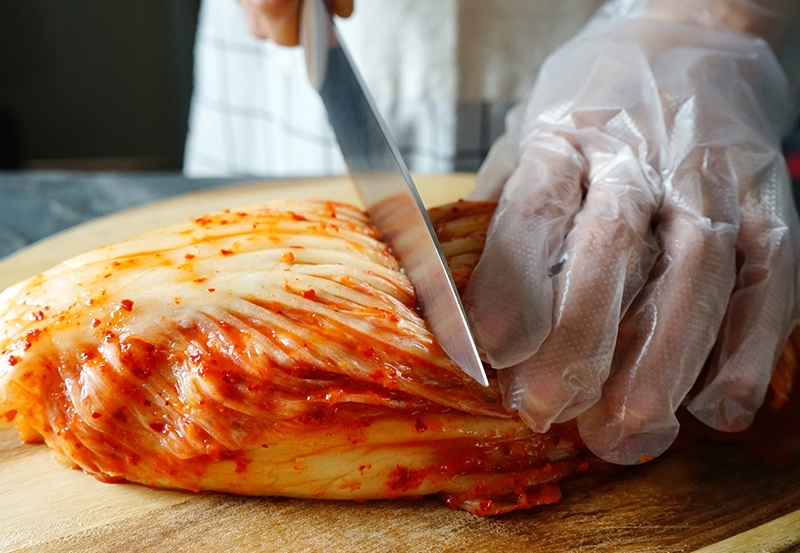
F. Mosu gloves
Mosu gloves are a new type of thermoplastic elastomer gloves, usually composed of olefin polymer materials and other additives, which can replace traditional latex, nitrile and Vinyl gloves. Compared with traditional gloves, Mosu food disposable gloves are softer, more flexible and more cost-effective.
The material of Mosu gloves has better flexibility, anti-slip, chemical resistance and puncture resistance, which can be used for general food handling tasks. In addition, Mosu gloves also have good heat and cold resistance for food handling at different temperatures.
Although Mosu food disposable gloves have good performance, the safety of their contact with food needs to be guaranteed by national certification and testing. Therefore, when choosing Mosu gloves, it is recommended to choose brands and models with relevant certifications and check the appearance of the gloves intact before use to ensure the quality and safety performance of the gloves.
In conclusion, Mosu gloves are a kind of gloves suitable for contact with food, but you need to make sure that they have passed the relevant certification and testing before use and pay attention to check whether the appearance of the gloves is intact to ensure the quality and safety performance of the gloves.
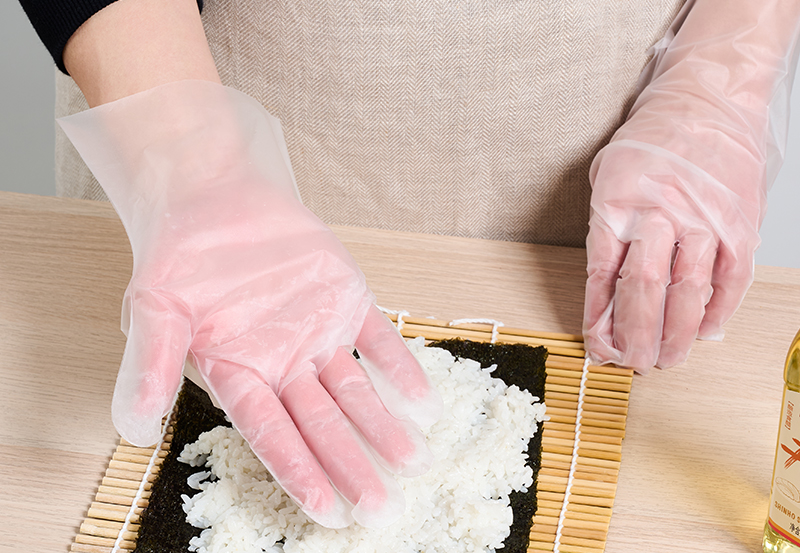
G. Vinyl gloves
Vinyl gloves are a common type of food disposable gloves that are made from polyvinyl chloride (PVC) material. While vinyl gloves are generally considered safe for contact with food, there are some limitations and concerns to be aware of.
Firstly, vinyl gloves are not recommended for use with fatty or oily foods as they can break down the material and compromise its effectiveness. Secondly, vinyl gloves are not as strong or durable as other types of gloves such as nitrile or latex gloves and may tear or puncture more easily, which can create a risk of contamination. Finally, some studies have shown that vinyl gloves may release harmful chemicals when they come into contact with certain foods or chemicals, and there have been concerns about the potential health risks associated with long-term exposure to vinyl gloves.
Therefore, while vinyl gloves may be suitable for some food handling applications, it is important to carefully consider their limitations and potential risks before using them in a food contact setting. It is always recommended to follow proper food safety protocols, including proper hand hygiene and glove use, regardless of the type of glove being used.
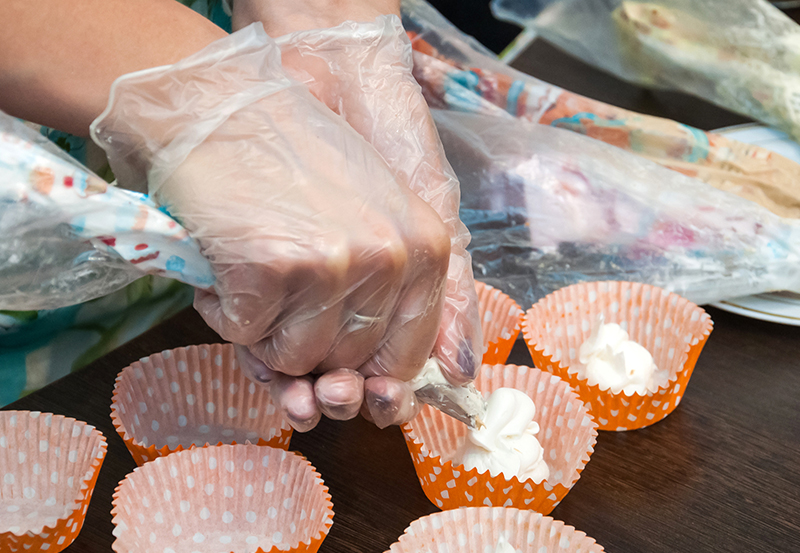
If contact with food is required, materials such as polyethylene or CPE food disposable gloves that meet relevant standards are recommended.
Different food disposable gloves materials have their own advantages and disadvantages when in contact with food and need to be selected according to actual needs and use scenarios.
Mosu gloves are a new type of TPE glove that is more comfortable and easy to wear with better flexibility and elasticity than traditional vinyl or CPE gloves. At the same time, the physical and chemical properties of magic plastic gloves are also more stable, in line with the relevant standards of GB4806.7-2016 and FDA requirements, can be used in contact with food, medical, cosmetics and other fields.
However, it should be noted that although magic plastic gloves are more suitable for contact with food compared to gloves made of other materials, they still need to be used in strict accordance with the specifications to avoid problems such as glove residue and cross-contamination. Therefore, whether you choose magic plastic gloves or other glove materials, you need to pay attention to the use of methods and norms to ensure food safety.
In addition, food disposable gloves must be washed before use, and ensure that hands dry. During use, the inside of the glove may also come into contact with food, so care needs to be taken to keep the glove clean and avoid cross-contamination. Gloves should be removed immediately after use and disposed of properly.




